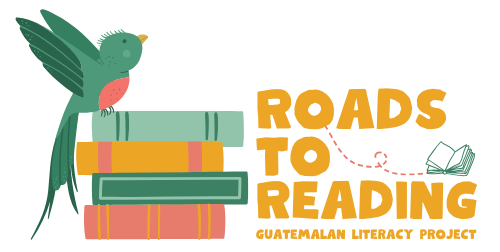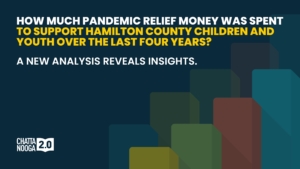Chattanooga 2.0 joins forces with La Paz and others to acquire and DISTRIBUTE culturally affirming children’s books for Guatemalan-American families.
By Jennifer Andrews, Director of Early Childhood Strategies and Brandon Hubbard-Heitz, Director of Literacy & Student Strategies
Guatemalan-Americans are the second largest national group of Latinos in Hamilton County, but until now, it’s been difficult for families to find children’s books in the Mayan languages they speak at home. As part of the Early Childhood Action Plan, Chattanooga 2.0 has partnered with La Paz, Chattanooga Public Library, Hamilton County Schools, the Enterprise Center, and WTCI PBS to provide books and audio-visual aids to Guatemalan families in a new project called Roads to Reading.
Many of Hamilton County’s children with Guatemalan heritage are being raised by parents and caregivers who don’t speak Spanish as their first language. In fact, many speak one of several indigenous languages that date back to the Mayan civilization. Parents and caregivers who speak languages like K’iche’, Mam, and Q’anjob’al do their best to support their children’s early literacy skills by telling stories, singing songs, and making use of online educational videos in English or Spanish. What has been lacking, however, are books and literacy resources for families in their home language.
Research shows that children need a whole-family approach that is culturally and linguistically familiar when learning to read. Because we know families are children’s first and best teachers, every child should have access to books in their home language. That is why Chattanooga 2.0 and its partners through Roads to Reading are distributing free books, videos, and audiobooks in Mayan languages to Hamilton County Guatemalan-American families with young children.
Chattanooga 2.0 led project management and program evaluation of Roads to Reading while La Paz was strategically chosen to serve as the community face of this work, identifying and interfacing with the target families. Hamilton County Schools secured important data about the languages spoken by current elementary students and supported the effort to collect baseline data about kindergarten readiness. The Enterprise Center played a crucial role in coordinating with Guatemalan experts to acquire culturally sustaining books and other literacy resources, while the Chattanooga Public Library consulted on book distribution, read-aloud technology, and family engagement. Finally, WTCI PBS provided technical support and studio access, ensuring the project had the necessary multimedia components to engage children and families effectively.
By providing children’s books and videos in Mayan languages to our young Guatemalan neighbors, along with reading tips for caregivers, we increase the likelihood that those children will arrive at kindergarten with print knowledge – an integral early literacy skill. And we know the earlier children in our community acquire early literacy skills, the more likely they are to be reading on level later in elementary school.
Roads to Reading is a testament to the power of collaboration and community support. It not only bridges the literacy gap for Guatemalan-American families but also celebrates their culture and heritage. This Hamilton County initiative is paving the way for a brighter future. One where all families have access to the resources they need to foster literacy and lifelong learning beginning at birth. Chattanooga 2.0 staff will be tracking the impact of this collaborative strategy to measure what we hope will be a profound effect on kindergarten readiness and literacy success in elementary school and beyond.
The project launch was celebrated during Hispanic Heritage Month at a community event at La Paz Chattanooga. Learn more about the Roads to Reading Guatemalan Literacy Project and its available resources here.
Video Courtesy of WDEF News 12





